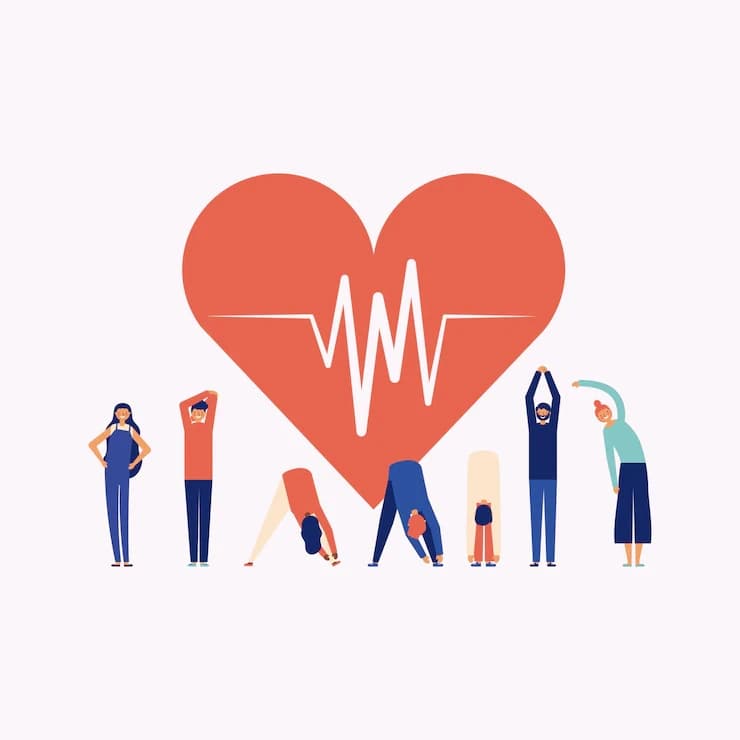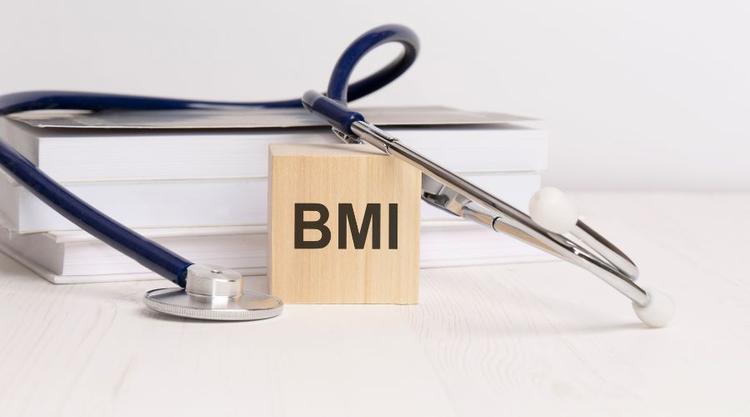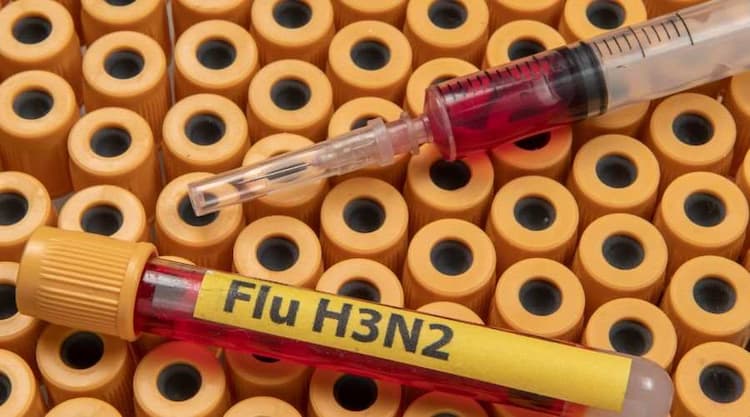Rigorous Exercise And Increasing Heart Attacks! Know Why And How To Prevent?

Medically Reviewed By
Dr Divya Rohra
Written By Meenakshi
on Nov 23, 2022
Last Edit Made By Meenakshi
on Mar 16, 2024

After standup comedian Raju Srivastav, another television star Siddhaanth Surryavanshi lost his life to cardiac arrest during an intense workout in the gym. Over the years, the cases of cardiac deaths during exercises are increasing rapidly, and it is raising fear and concerns among all. So, is workout safe? Can it actually trigger heart attacks? Don't worry; here in this blog, we covered everything, why it happens, who is at risk, and how to prevent it. So, scroll down to find.
Exercise, in general, is good for your health and heart and can reduce your risks of developing cardiovascular diseases. However, despite its obvious health benefits, strenuous exercise can do the opposite and increases the perils of sudden heart attacks. Therefore, listening to your body and knowing your limits is essential to stay in a safe heart rate zone.
Causes Of Heart Attacks During Exercise:
- Unknown underlying heart condition
- Intense physical exertion
- Any genetic abnormality
- Blockage in one of the coronary arteries
- The sudden formation of blood clots affects blood flow
- Thinning of blood vessels, causing premature rupture
- Problem with the electrical system of the heart
Besides this, several other risk factors increase one’s probability of experiencing a sudden cardiac arrest during a workout. Such factors are:
- Being older than the age of 65
- The problem of high blood pressure
- Being obese or overweight
- History of heart disease or stroke
Warning Signs To Stop Exercising Immediately:
Being attentive to your health is the most effective way to escape a heart attack. If you experience anything unusual during exercise, stop immediately and seek medical help. Such signs that you need to be taken seriously are:
- Chest pain, discomfort, or heaviness
- Extreme tiredness and fatigue
- Fast or irregular heartbeat
- Breathlessness or difficulty breathing
- Dizziness, lightheadedness, or loss of consciousness
Do not take any of the above signs lightly, especially during an intense workout. Your little awareness or attentiveness is the key that can save your life.
If you have an existing heart disease, you need to consult your healthcare professional to discuss precautions that you should take. There are plenty of things that you can do to keep your risk of experiencing a sudden cardiac arrest during exercise to a minimum.
Tips To Avoid Heart Attack During Your Regular Workout Routine:
Have Nutrient-Rich Diet: Your diet and eating habits are directly linked to your heart health. Binge-eating junk or unhealthy food can damage blood pressure, cholesterol levels, and inflammation, which triggers a heart attack. Therefore, you should switch to a heart-friendly diet to reduce risks and maximize heart health. Avoid junk or oily foods that block your arteries.
Practice Breathing Exercises: Your breathing technique has the potential to save your life and help you escape a heart attack. Besides keeping your blood flow in control and improving oxygen saturation levels of the blood, practicing proper breathing exercises can relax your muscles and body, especially during an intense workout session. You can speak to your healthcare professional or health coach for better clarity.
It’s Okay To Take A Break For A Day: Getting out of your comfort zone and pushing limits is indeed crucial to attaining success in life, but not in health, especially if it is a matter of your heart. If, on days, you are feeling unwell or a little low, you should better avoid strenuous exercise, as it can otherwise put you at more significant health risks.
Always Warm Up Your Body: Getting your body ready for a workout is the first and foremost step. Therefore, do not take warming up exercise lightly, as it signals your body to be ready to handle the stress or physical training with maximum safety. It decreases your risk of injury and helps you obtain positive health outcomes.
Follow Instructions: Exercising too much or doing the wrong exercise may lead to several health complications and even heart attacks. A gym trainer understands your health capabilities the best and tailors your workout accordingly, and it helps you get the maximum benefit and avoid anything serious.
Use Your Lungs: Holding your breath during exercise can be hazardous to your health, especially when lifting weights. It can directly impact your heart health and compromise the oxygen supply to your body, which raises your risk of sudden cardiac arrest. Therefore, being patient and using your lungs is highly advisable to avoid such risks.
Listen To Your Body: Pushing your body beyond a limit can have devastating effects. Give it enough time to adapt to the pressure of physical stress imposed on it to obtain positive outcomes and avoid complications. Always listen to your body and slow down when required.
Get Done Regular Health Screening: Change in blood pressure or cholesterol levels can drastically affect your heart health. Most people are unaware that they have such health problems until they become complicated. Regular health screening is the only way to know your numbers and find whether you are at risk. Any up or down in their levels can affect your life and exercise regimen and increase your odds of experiencing a heart attack. Therefore, timely health screening or routine Heart Test is essential to track your heart health and avoid severities.
The benefits of regular exercise are uncountable. However, exercising vigorously can be bad for your heart. Therefore, indulging in a safe and effective routine and listening to your body is essential to avoid heart attacks. Being mindful is critical for all, especially if you have a history of heart disease.
Top Heart Tests To Prevent Heart Attack:
As per the Centers for Disease Control and Prevention, around 80% of premature heart disease and strokes are preventable. Our lifestyle or dietary choices and routine heart screening can significantly reduce our risk of heart disease. While most people consider the first two, they overlook the significance of routine heart screening. It has a crucial role in preventing a wide range of heart diseases by detecting them early when they are still manageable. So, what are those common heart tests that can make a difference? Scroll down to find out:
- Lipid Profile Test: The test will help measure LDL, HDL, and triglycerides that help assess your risks of developing cardiovascular diseases.
- Glucose Fasting Test: It helps measure blood sugar levels that assess your diabetes risk, which increases your likelihood of developing cardiovascular complications.
- C-reactive protein (CRP) Test: The C-reactive protein (CRP) test checks for inflammation in the body, and elevated CRP levels can indicate an increased risk of cardiovascular disease.
- N-Terminal Pro B Type Natriuretic Peptide (NT-pro BNP) Test: It is especially recommended routinely for diabetic patients to measure Nt-pro BNP hormone that helps identify their risk of heart disease and diagnose varied heart-related conditions.
The test ideal for heart health assessment depends on your health conditions, risk factors, age, gender, and other factors. Your healthcare practitioner may suggest the right test and other preventive measures to prevent heart attack and maintain overall well-being.
Role Of Diagnostic Testing To Reduce Your Risks Of Heart Attacks:
Diagnoses make it easier for your healthcare professional to look inside the heart and detect the presence of plaque, blood clotting, and other problems, which, if not addressed in time, can lead to cardiac arrest or heart failure. Therefore, routine heart tests are recommended for one and all, primarily those with high risks, to identify signs early and take charge while there is still time.
Before starting any high-intensity workout, get your routine cardiac test done with a reliable diagnostic center like Redcliffe Labs. It is highly advisable for all, especially if you have a history of heart disease, high cholesterol, diabetes, or other chronic health conditions. We have a comprehensive range of health tests specially designed to thoroughly screen your heart health, such as the Healthy Heart Package, Cardiac Profile Test, depending on your clinical requirements at competitive market rates. We have the most advanced resources and skilled team of professionals to offer exceptional diagnostic experience with maximum precision.
So, do not take your heart health lightly. Book a routine cardiac or heart screening to know your risks and take preventive measures before the eleventh hour.



